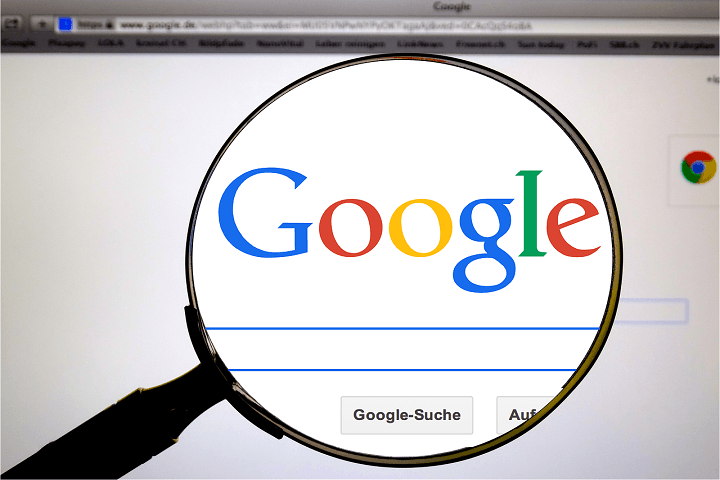Computer
Protecting Your Website and SEO From Hackers
Protecting your website is essential, especially if you want to minimize hackers’ risks impacting your content, SEO or marketing intentions.

If your website lacks any security, it is possible and quite common for it to get hacked. Protecting your website is essential, especially if you want to minimize hackers’ risks impacting your content, search engine optimization (SEO), or digital marketing intentions. Most people rely on their company’s Information Technology (I.T.) department, but not every person has this luxury and may need to learn cybersecurity and hacking prevention techniques independently.
Table of Contents
1. What does the word “hacking” mean?
Hacking is when a person tries to access a particular website or computer network and succeeds, without permission from the website or network owner. There are several different ways a hacker may carry out their plan, but most hackers obtain a password or code to access websites, networks, platforms, or computer systems. This can lead to personal or sensitive information being exposed.
2. What are the methods hackers usually use?
According to an SEO company located in St. Louis, MO, hackers use two standard malware and spamming methods. Malware is created to impair and damage the chosen network and is frequently used by hackers trying to access protected data. If your personal or company website is at risk for a malware attack, this may lead to a substantial financial loss.

An example of spamming is when a hacker adds a hyperlink to a website, and the user clicks on it, which leads to the hacker’s chosen webpage. Placing links that lead to the hacker’s webpage on multiple websites and platforms with a lot of traffic can increase the hacker’s search engine rankings. This is a way to trick the system instead of creating content with ethical search engine optimization (SEO).
3. What happens to a website once it is hacked?
The majority of websites are hacked by spamming SEO content. This is usually a planned method by the hacker in which the hacker gains an advantage through website traffic and strong visibility. Once a website has been hacked by spamming SEO content, it most likely will be turned into a “link farm” where hackers can entice visitors to click on malware hyperlinks.
Also, hackers may use SQL injection, a code injection method used to gain access to websites to attain sensitive data. When this happens, the website becomes a playground for spam, and website recovery is usually challenging.
If Google identifies a malicious code on a website, it will display a message on the page as a warning to anyone who visits the website. It urges people not to use the website as it can be a risk to their computers and personal data. Malicious code is a code that is part of a software system created to damage a computer, a network, or a server.

It is frequently used to compromise stored data and can cause a computer to stop functioning altogether. Sometimes, a website with this warning may be removed from any search engines to protect users. Unfortunately, this will affect your website’s SEO value because the visibility will shrink. Users will have a hard time trusting your website again. Your engagement metrics will be negatively impacted.
The metric engagement system determines the effectiveness of a website and how much it is connecting with users. For example, it shows how long a person is on the webpage, how many pages they visit, how many clicks, and how many shares.
Additionally, it is common for hackers to use redirects when hacking a website. This means that users will be sent to a different web page than they initially were trying to access. After the individual has been redirected to another webpage, they most likely will notice that it contains forms of harmful content, such as links that aim to get users to click on them and reveal their sensitive documents and information.
If Google becomes aware of this information and visits your web page redirected and finds harmful content, your visibility and website traffic may be negatively impacted.
Overall, being hacked can ruin the reputation and success of a website. If a website has been hacked, it may end up flagged by Google, which will result in it not doing well in the Search Engine Results Pages (SERPs). If Google does not flag the website, it could potentially lead to more hacking. This could put the website at more risk of earning any financial profit and gaining more visibility.

Most website owners that run into this situation can vouch that this is a big problem. By being blacklisted or flagged, the quality of your website as well as the visibility is diminished. It cannot recover from this loss until reviewed, cleaned, and all penalties are taken off. However, it is better to be flagged than not to be flagged and unaware that hackers are taking over your website.
4. What are the potential risks, and how can hacking be prevented?
There are several ways that a website becomes more at risk of being hacked. The most common tools that lure hackers to your web page are plugins, non-secure credentials, and server sharing. Many individuals who start a website with WordPress commonly use plugins, and not all plugins are secure.
This is a gold mine to hackers because they are always on the lookout for websites that use outdated or insecure plugins, which gives the hacker a clear path to implement their hacking procedures. Therefore, it is essential always to research a plugin before you use it on your website. The Reviews are also a good source of information to determine if the plugin is secure.
Non-secure credentials can easily expose your data. To prevent this from happening, you should always be sure to make them difficult for others to figure out. Another technique that can be used to help is called “penetration testing.” This technique evaluates the computer system and determines any security weaknesses that a hacker could easily use.
Sharing a server is also not a good idea. The reason is that, even if you are very careful, another person could upload a harmful file, which could be passed onto all the people sharing the server. It could also provide access to additional hackers.
All websites are at risk of being hacked at some point. Instead of waiting for it to happen, it is recommended to prepare ahead of time and have strategies in place to prevent it. Staying up to date on tips is also a good idea, so you will know what to do when hacking occurs on your webpage. If you are creating SEO content, implement functional security measures to guard it against hackers.
-

 Instagram4 years ago
Instagram4 years agoBuy IG likes and buy organic Instagram followers: where to buy them and how?
-

 Instagram4 years ago
Instagram4 years ago100% Genuine Instagram Followers & Likes with Guaranteed Tool
-

 Business5 years ago
Business5 years ago7 Must Have Digital Marketing Tools For Your Small Businesses
-

 Instagram4 years ago
Instagram4 years agoInstagram Followers And Likes – Online Social Media Platform















